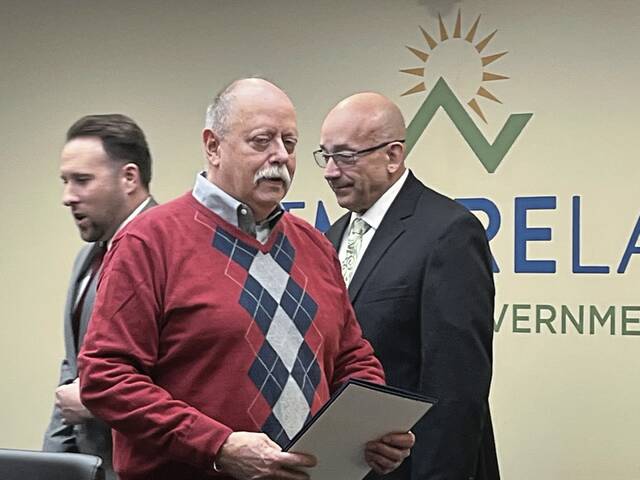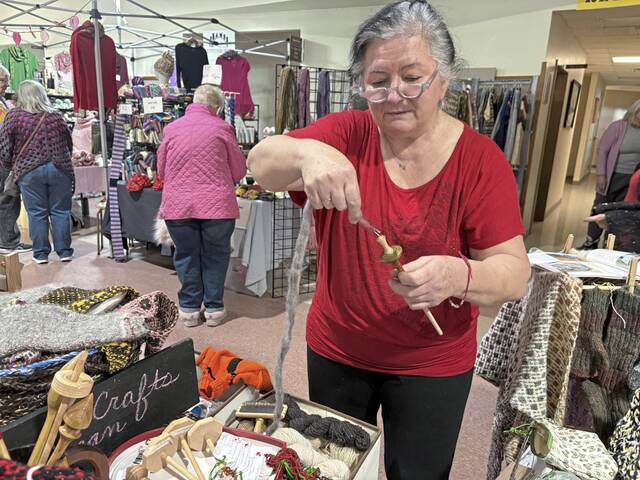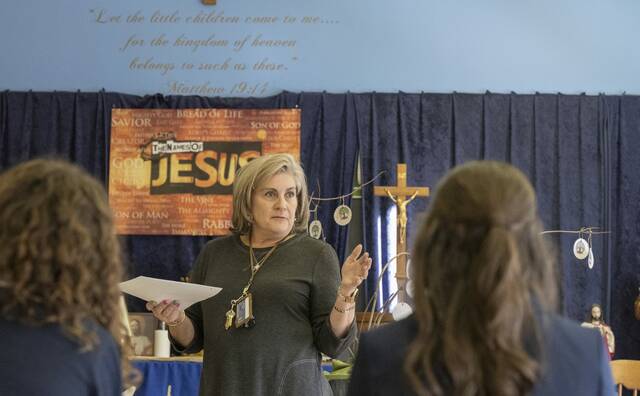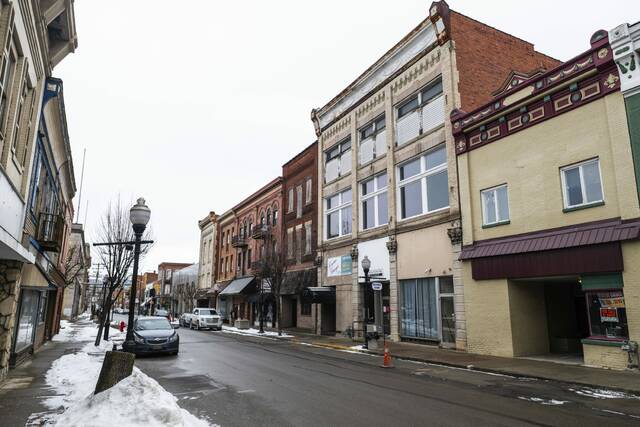While Southwestern Pennsylvania’s robotics industry has the potential to grow with a targeted federal grant of almost $63 million, officials Monday stressed the need for a skilled workforce to make that potential for growth a reality.
“This is about our economic future,” said Craig Buerstatte, the U.S. Economic Development Administration’s deputy assistant secretary for regional affairs.
Buerstatte was joined by economic development officials, legislators and private industry leaders who gathered Monday at the Westmoreland Advanced Technology Center at Westmoreland RIDC near New Stanton.
There is a need for “upskilling” — training people for jobs in the new economy — and it has to be done in an equitable way, both by race and by geography, said Stefani Pashman, CEO of the Allegheny Conference on Community Development and chairperson of the Southwestern Pennsylvania New Economy Collaborative board that landed the grant.
The new organization a coalition of Carnegie Mellon University in Pittsburgh, economic development organizations and private industry in partnership with manufacturing organizations.
“We have a big problem in this region creating jobs, and the broader region is not benefiting from this play,” Pashman said. Most of the robotics and artificial intelligence sector is centered in Pittsburgh’s Oakland neighborhood, she noted.
“It will create more jobs and more opportunities,” Pashman said.
To get an idea of the growth in the region’s robotics industry, CMU professor Parag Batavia, who is also the founder of Neya Systems, said that when he started his robotics business in 2009, there were fewer than 20 firms in the region in that sector. Now there are more than 100 firm, focusing on the defense, mining, agriculture and other industries.
There are more than 3,000 small- to medium- sized manufacturers in the region that have the ability to grow in this industry, keeping the founding partners and technologies here, working on problems with a nationwide impact, Batavia said.
Westmoreland County Commissioner Sean Kertes called the grant “monumental” and wanted to make sure that the county would be able to share in that growth. The development of this sector of the economy with the grant could benefit the county because farming is the No. 1 industry and manufacturing is No. 3, Kertes said.
“The focus is on skilled labor and trades,” Kertes said.
Without the skilled workers to do the repetitive tasks of programming the operation and maintaining it, the firms can’t do the work, said Petra Mitchell, president of Catalyst Connection, a nonprofit assisting manufacturing. Training is necessary because two-thirds of the firms that employ some 86,000 workers in manufacturing in Southwestern Pennsylvania are not necessarily connected to artificial intelligence, Mitchell said.
Workers with a high school diploma or general equivalency degree can be trained in robotics, said Grant Vandenbussche, chief category officer for Fifth Season, an indoor farming operation using robotics under 60,000 square feet of roof in a community known for legacy steelmaking — Braddock and U.S. Steel Corp.’s Edgar Thomson Plant.
“It’s a highly technical environment and we pay $15, $18, $20 an hour,” Vandenbussche said.
Longtime U.S. Rep. Mike Doyle, D-Forest Hills, who is not running for re-election, said part of the problem in getting workers to apply for these jobs in robotics and artificial intelligence is that people are afraid that they can’t perform the job.
“We have to let them know they can do it. We have to bring them along (in training) or all of this is for naught,” Doyle said.
“Talent is the ultimate king in Western Pennsylvania,” with its history in manufacturing, said Andrew Woelfling, global head of government relations at Argo AI, which is involved in developing and testing autonomous vehicles at Westmoreland RIDC
The Southwestern Pennsylvania Commission has been working with the region’s workforce investment boards and its community colleges to build a workforce for this new technology, said Vince Valdes, president and CEO, Southwestern Pennsylvania Commission.
The grant will be spread across multiple projects:
• $4.5 million for small and medium businesses to receive assistance in bringing robotics and AI to farming, manufacturing, construction, energy and health care.
• $24.8 million for regional workforce training for robotics technology developers and technology adopters.
• $12 million for a robotics startup factory to help new companies focus on robotics and AI in various industries.
• $6.9 million to increase paths for minorities and underrepresented groups and for starting a minority and women-owned business enterprise.
More than 90 public and private groups across 11 counties worked together to land the grant, Buerstatte said.
The economic benefits of this collaboration and the grant will stretch beyond the Pittsburgh area and into the outlying rural communities and those areas impacted by the downturn in the coal mining industry, once a mainstay of the economy for towns in Westmoreland, Indiana, Fayette, Greene and Washington counties.
“We don’t want this to be just a Pittsburgh ‘thing’, solving problems in Oakland,” said Majestic Lane, chief equity officer for the Allegheny Conference.
This story was updated Oct. 18, 2022, to correct a typographical error in a quote by Rep. Mike Doyle.











